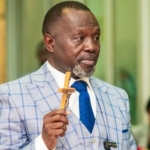
There are moments in a nation’s constitutional life when one expects the guardians of the law to rise like ancient priests of justice, wielding clarity and fidelity as their sacred staff. Instead, we are sometimes served a spectacle worthy of a travelling circus.
And so here we are, watching the Attorney General’s Office perform intellectual gymnastics in defence of Wesley Girls’ High School, a school that by every historical and legal account is a government institution, purchased outright by the State of Ghana from the Methodist Mission decades ago. Yet in a feat that defies both gravity and history, the Attorney General insists that this government school is somehow a private Methodist sanctuary entitled to enforce its own rules of religious selectivity. One almost imagines the Constitution standing at the sidelines, holding its head in its hands, whispering, not again.
The Attorney General’s argument is a curious invention, one that would make even American constitutional scholars shake their heads. Under American First Amendment jurisprudence, this type of dispute would fall neatly under government speech and content neutrality. When the State runs a school, the school cannot drape itself in denominational robes to escape constitutional scrutiny.
American courts have long held that a public school cannot adopt religious rules that burden minority faiths, no matter how historic the school’s origins. Attempting to label government action as denominational is like trying to baptise a river yet insisting the water did not touch your feet.
Read Also: Attorney General backs Wesley Girls SHS in Supreme Court case over alleged religious discrimination
The United States Supreme Court made this very clear in cases like Engel v. Vitale and Santa Fe Independent School District v. Doe, where any government-sanctioned religious preference was struck down for violating the Establishment Clause. Even attempts to compel or privilege religious observance in public institutions were rejected, sometimes with opinions so sharp they could slice through the very arguments our Attorney General has proudly adopted.
If this case were placed before an American court, it would trigger strict scrutiny, the highest constitutional test, because religious freedom is a fundamental right. The State would have to prove a compelling government interest and show that the religious restriction is the least restrictive means of achieving that interest. Even the most daring lawyer would hesitate to argue that preventing students from wearing hijab or observing Ramadan is a compelling state interest. In fact, the courts have repeatedly rejected attempts to sideline minority religious practices in public schools.
In cases involving Jehovah’s Witnesses, such as West Virginia v. Barnette, when the State attempted to impose uniformity that trampled on religious conscience, the Court responded with a rebuke so profound it became a constitutional hymn. The Court held that no official can prescribe what shall be orthodox in matters of opinion. One wonders how the Attorney General missed this melody.
Meanwhile, in Ghana, we are told that a government school can simply resurrect its former Methodist identity, as though ownership were a spirit that refuses to cross over even after legal burial. If this logic is accepted, then any public institution with a denominational past can suddenly claim religious exceptionalism. What stops a government hospital, once founded by Catholics, from refusing to treat patients on Fridays because it conflicts with its donor’s ancient calendar? What stops a public university, once funded by Presbyterians, from insisting all students sing hymns before lectures? If this line of reasoning continues, we may well find ourselves governed by ancestral committees rather than constitutional authority.
Read Also: Wesley Girls’ case: No right is divisible; we won’t deny any girl her faith – Education Minister
The irony is almost poetic. The Attorney General, whose solemn duty is to protect the Constitution, now stands as its chief contortionist. While the Charter demands equality and neutrality, the Attorney General offers denominational nostalgia dressed as legal reasoning. It is reminiscent of a village storyteller who insists that because the shrine once sat on a hill, the hill must forever obey the shrine. Legal scholars across the world would marvel at such logic.
What makes the matter even more tragicomic is that the government, which owns the land, funds the school, pays the teachers, and regulates the curriculum, suddenly begins to speak as though it were a mere visitor in its own house.
Listening to the Attorney General, one might think the government is a tenant tiptoeing carefully through Wesley Girls, afraid to offend an invisible Methodist landlord. But the Constitution is unambiguous. Public institutions are bound by constitutional obligations. They do not get to borrow the spiritual identity of their former owners to escape the supremacy of the law.
Perhaps the most amusing twist is that while the Attorney General defends the restriction as sacred heritage, the very students affected walk the corridors of the same school wearing government-issued uniforms and studying government-approved syllabi, their education funded by taxpayers from every religious background. Yet somehow, when it comes to respecting their right to practice their faith, the government suddenly retreats into missionary memory, claiming theological paralysis.
What is unfolding is not a legal defence but a theatrical performance, complete with props, symbolism, and misty recollections of denominational origins. One almost expects the next argument to be that the Constitution must step aside because the school hymn was written before 1957. But Ghana is not governed by hymns. It is governed by a Constitution that demands fairness, equity, and neutrality in public institutions. Any attempt to reclassify a public school into a private religious enclave merely because it is convenient is not jurisprudence. It is mythology.
In the end, the Attorney General’s position is not just weak. It is constitutionally fragile, historically inaccurate, and jurisprudentially embarrassing. Ghana deserves better than legal acrobatics masquerading as constitutional defence.
The Supreme Court must remind the Republic that once a school becomes a public institution, it cannot pick and choose religious preferences like a market woman selecting ripe plantains. The Constitution does not bend to denominational nostalgia. And no government official, no matter how poetic his pen, can rewrite the meaning of public school with the ink of selective memory.
- President Commissions 36.5 Million Dollars Hospital In The Tain District
- You Will Not Go Free For Killing An Hard Working MP – Akufo-Addo To MP’s Killer
- I Will Lead You To Victory – Ato Forson Assures NDC Supporters
Visit Our Social Media for More




